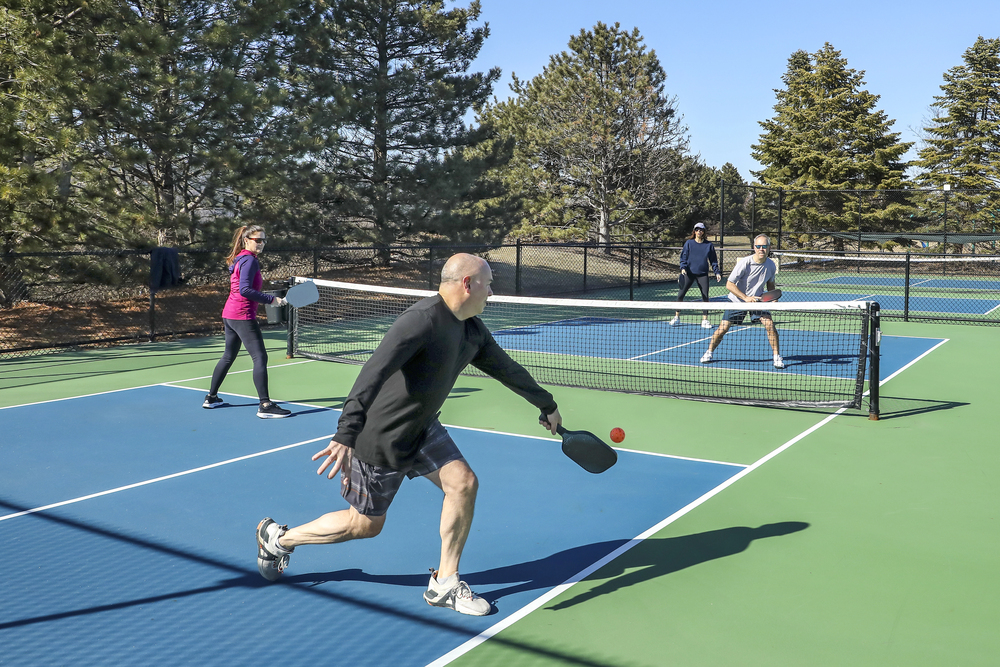What Will I Do With My Free Time Now That I'm Retired? The Complete Guide to Fulfilling Retirement Activities

The question "what will I do with all my free time in retirement" has never been more relevant. Retirees today enjoy an average of 7.5 hours of leisure time daily – more than any other age group – yet many still struggle with the transition from a structured work life to open-ended retirement days.
This comprehensive guide answers the most pressing question facing new retirees: how to transform abundant free time into meaningful, purposeful, and enjoyable activities that enhance your golden years.
If you prefer, you can listen to a "podcast style" version of this blog post:
The Reality of Retirement Free Time: What the Data Shows
Americans age 65+ are the most "time affluent" group in society, according to the landmark Merrill Lynch and Age Wave study. Collectively, retirees will fill 2.5 trillion hours of leisure time over the next 20 years, creating unprecedented opportunities for personal fulfillment.
The Retirement Boredom Challenge
Despite this time abundance, 42% of retirees who return to work cite boredom as their primary motivation, according to 2024 ResumeBuilder survey data. Among seniors who haven't retired yet, 42% fear boredom in retirement – a legitimate concern that requires proactive planning.
The good news? Most retirees (79%) report having the amount of free time they desire, and 66% prefer trying new things versus repeating familiar activities. The key is knowing where to channel your energy.

Understanding Your Retirement Dreams vs. Reality
What Retirees Planned to Do vs. What They Actually Do
The 2024 Transamerica Institute study reveals fascinating insights about retirement dreams versus reality:
Pre-Retirement Dreams:
- Traveling (59%)
- Spending more time with family and friends (52%)
- Pursuing hobbies (41%)
Retirement Reality:
- Spending time with family and friends (58%) ✓
- Pursuing hobbies (43%) ✓
- Traveling (36%) – less than expected
- Taking care of grandchildren (19%)
- Volunteer work (16%)
- Caregiving for loved ones (10%)
- Paid work/encore careers (4%)
This data shows that social connections and hobbies are the most achievable retirement goals, while travel – though popular in dreams – proves more challenging to execute consistently.
The Four Stages of Retirement Leisure: Finding Your Current Phase
Understanding where you are in your retirement journey helps determine the best activities for your current life stage. Research identifies four distinct phases:
Stage 1: Liberation & Self-Discovery (0-2 years into retirement)
- 92% experience greater freedom and flexibility
- 72% want to try new leisure activities
- 22% regularly volunteer
- Focus: Exploring new possibilities and establishing routines
Stage 2: Greater Freedom & New Choices (3-15 years into retirement)
- 74% find it easier to structure their time
- Peak activity period for exercise, classes, and socializing
- Higher leisure travel spending and longer trips
- Focus: Active engagement and skill building
Stage 3: Contentment & Accommodation (15+ years into retirement)
- 72% report health limitations affecting activities
- Preference for familiar activities over new experiences
- Increased focus on family connections
- Focus: Maintaining independence and meaningful relationships
Stage 4: Reflection & Legacy
- Emphasis on sharing wisdom and life experiences
- Reduced physical activities, increased contemplative pursuits
- Focus: Legacy building and spiritual growth
Top Retirement Activities by Category
Physical Activities: Stay Active, Stay Healthy
Exercise is practiced by 57% of retirees, making it one of the most popular retirement activities. Here are the top physical pursuits:
1. Pickleball: The Retirement Sport Phenomenon
Pickleball has grown 223% over the past three years, with the average player age being 35 (though it remains hugely popular among retirees). Benefits include:
- Low-impact on joints
- Easy to learn, difficult to master
- Strong social component
- Available at 10,724+ courts nationwide

2. Walking and Hiking
- Accessible to all fitness levels
- Free and available everywhere
- Great for mental health and social connection
- Can be adapted as mobility changes
3. Water Aerobics and Swimming
- Excellent for arthritis and joint issues
- Full-body, low-impact exercise
- Social opportunities through classes
- Year-round indoor options available
4. Golf and Tennis
- Traditional retiree favorites
- Strong social networking opportunities
- Skill-based progression keeps interest high
- Many senior-friendly leagues available
Intellectual Pursuits: Keep Your Mind Sharp
Personal growth and learning rank as priorities for 47% of retirees. Consider these brain-boosting activities:
1. Learning a New Language
Learning a second language has proven cognitive benefits and opens cultural doors. Popular options:
- Duolingo for self-paced learning
- Community college courses for structured approach
- Language exchange programs for social interaction
- Travel opportunities to practice skills
2. College Courses and Lifelong Learning
Many universities offer:
- Audit courses for reduced fees
- Senior citizen discounts
- Online learning options
- Certificate programs in new fields
3. Reading and Book Clubs
Book club participation combines intellectual stimulation with social connection:
- Local library programs
- Online book communities
- Genre-specific clubs (mystery, biography, etc.)
- Discussion groups for deeper engagement

4. Writing and Storytelling
Popular writing projects include:
- The great American novel many retirees dream of writing
- Family memoirs and histories
- Blog writing about your expertise
- Poetry and creative writing groups
Creative and Artistic Activities
Arts and crafts remain popular among retirees for their therapeutic benefits and tangible results:
1. Visual Arts
- Painting and drawing classes
- Photography (digital or traditional)
- Pottery and ceramics
- Woodworking and furniture making
2. Performing Arts
- Community theater groups
- Choir participation
- Musical instrument lessons
- Dance classes (ballroom, line dancing, tai chi)
3. Crafts and Handwork
- Knitting, crocheting, and sewing
- Quilting groups
- Jewelry making
- Scrapbooking and memory keeping
Social and Community Activities
Social connections rank as more important than specific activities for 61% of retirees. Here's how to build and maintain relationships:
1. Volunteer Work
Volunteer work engages 16% of retirees and provides tremendous satisfaction:
Popular volunteer opportunities:
- Meals on Wheels delivery
- Food pantry assistance
- Hospital and healthcare support
- Volunteering as a tour guide at museums or historic sites
- Literacy tutoring and mentoring
- Animal shelter assistance
Benefits of volunteering:
- Sense of purpose and meaning
- Social connections with like-minded people
- Skills development and application
- Community impact and legacy building
2. Social Groups and Clubs
- Service organizations (Rotary, Lions Club, etc.)
- Hobby-based clubs (photography, gardening, cooking)
- League play for sports and games
- Religious or spiritual communities
3. Grandparenting and Family Time
Taking care of grandchildren is a reality for 19% of retirees:
- Regular babysitting or childcare
- Special outings and adventures
- Teaching skills and sharing wisdom
- Creating lasting family memories

Travel and Adventure
While only 36% of retirees who dreamed of traveling actually do so regularly, those who travel report high satisfaction:
1. Domestic Travel
Popular U.S. destinations for retirees:
- Hawaii (most popular)
- Alaska
- California
- Florida
- New York
2. International Destinations
Top international choices:
- Italy
- Australia
- England
- Ireland
- France
3. Alternative Travel Styles
- RV travel and camping
- Sailing lessons and boating
- Educational tours and Road Scholar programs
- Volunteer tourism (voluntourism)
- Multigenerational family trips
Productive and Income-Generating Activities
1. Part-Time Work and Encore Careers
While only 4% of retirees pursue paid work, those who do often find it rewarding:
- Part-time job in retail or service
- Consulting in your former field
- Work from home opportunities
- Seasonal employment (tax preparation, retail)
2. Entrepreneurship
- Starting a small business
- Freelance work utilizing your skills
- Online selling (crafts, collectibles)
- Dog walker or pet sitting services
How to Combat "Retired and Bored" Syndrome
Immediate Action Steps
If you're feeling retired and bored, try these strategies:
- Start small: Choose one new activity this week
- Leverage existing interests: Build on hobbies you already enjoy
- Set a schedule: Structure prevents boredom
- Connect with others: Meet new people through shared activities
- Try the "15 hours a week" rule: Dedicate significant time to meaningful pursuits
Creating Structure in Unstructured Time
Since I retired, many retirees struggle with the lack of imposed structure. Create your own:
- Morning routine: Start each day of the week consistently
- Weekly commitments: Schedule regular activities
- Monthly goals: Set achievable targets
- Seasonal projects: Plan activities around weather and holidays
Finding Your Sense of Purpose
Research shows retirees need meaningful activities that provide:
- Contribution to something larger than yourself
- Use of your skills and expertise
- Social connection and relationships
- Personal growth and challenge
- Physical and mental stimulation
The Social Connection Imperative
Loneliness affects 17% of retirees, making social activities crucial for wellbeing. The data is clear: who you spend time with (61%) matters more than what you do (39%).
Building Your Social Network
1. Maintain Existing Relationships
- Schedule regular contact with friends and family
- Time with family should be prioritized
- Stay connected with former colleagues
- Nurture neighborhood relationships
2. Create New Connections
- Join clubs aligned with your interests
- Volunteer for causes you care about
- Take classes where you'll see the same people regularly
- Consider religious or spiritual communities
3. Intergenerational Connections
- Mentor younger people in your field
- Teach skills to community members
- Chance to connect with people of all ages
- Bridge generational gaps through shared activities
Special Considerations for Different Retirement Situations
For Those Who Never Had the Time Before
Many retirees finally have the opportunity to pursue interests they always wished they could explore:
- Things you've always wanted to learn
- Hobbies put on hold during working years
- Travel destinations you've dreamed of visiting
- Skills you wanted to develop
For Retirees Facing Health Challenges
Adapt activities to your current abilities:
- Chair exercises and modified fitness routines
- Bird watching and nature observation
- Indoor hobbies like reading and puzzles
- Social activities that don't require physical exertion
For Those Concerned About Finances
Many meaningful activities are free or low-cost:
- Local library programs and resources
- Check out a local park or nature area
- Free community events and festivals
- Home-based hobbies and crafts
Technology and Modern Retirement
Today's retirees are more tech-savvy than previous generations:
Digital Activities
- Online learning platforms
- Video calls with distant family
- Social media communities
- Digital photography and editing
Staying Current
- Learning new technologies
- Smartphone and computer classes
- Online banking and shopping
- Digital entertainment options
Health and Wellness Activities
Staying healthy ranks as the top priority for 83% of retirees:
Physical Wellness
- Regular exercise routine development
- Preventive healthcare maintenance
- Nutrition and cooking classes
- Lower blood pressure through stress reduction
Mental Wellness
- Stress management techniques
- Meditation and mindfulness practices
- Cognitive skills and memory exercises
- Mental health support when needed
Social Wellness
- Recreational activities with others
- Social activities that build community
- Support groups for shared challenges
- Caregiving support networks
Financial Considerations for Retirement Activities
Budgeting for Leisure
Consider these cost factors:
- Retirement income limitations
- Activity-related expenses (equipment, memberships, travel)
- Transportation costs
- Health-related modifications
Finding Affordable Options
Many communities provide free or low-cost options:
- Senior center programs
- Great organization discounts for seniors
- Library and community center offerings
- Volunteer opportunities that also free up community resources
The Future of Retirement Activities
Emerging Trends
Among retirees, new trends include:
- Virtual reality experiences
- Online community building
- Eco-friendly and sustainable hobbies
- Health-focused activities
- Technology integration in traditional hobbies
Preparing for Changing Abilities
Plan for activities that can evolve:
- Low-impact alternatives to favorite sports
- Seated versions of standing activities
- Social activities that don't require travel
- Mental stimulation that doesn't strain eyes
Creating Your Personal Retirement Activity Plan
Step 1: Assess Your Interests
- List activities you've always wanted to try
- Consider what you still enjoy from your younger years
- Think about skills you want to develop
- Reflect on causes you care about
Step 2: Consider Your Resources
- Available time and energy
- Financial constraints
- Transportation options
- Health and mobility factors
Step 3: Start Small and Build
- Choose 2-3 activities to begin
- Variety of activities prevents boredom
- Allow time for each to develop
- Be patient with the learning process
Step 4: Build in Social Elements
- Chance to connect with people through shared interests
- Look for group activities and classes
- Consider teaching or mentoring opportunities
- Maintain regular social commitments
Common Retirement Activity Mistakes to Avoid
1. Over-scheduling Initially
Right after retirement, avoid filling every moment. Allow time for:
- Spontaneous activities
- Rest and relaxation
- Adjustment to new routines
- Discovery of unexpected interests
2. Focusing Only on Solo Activities
While personal hobbies are important, many retirees find fulfillment through:
- Group activities and classes
- Volunteer work with teams
- Social clubs and organizations
- Mentoring relationships
3. Avoiding New Challenges
Learning new things and learning new skills keeps the mind sharp:
- Don't limit yourself to familiar activities
- Embrace beginner status in new pursuits
- Pursue new interests outside your comfort zone
- Remember that learning a new language or skill is possible at any age
4. Neglecting Physical Activity
Stay active is crucial for health and mobility:
- Include some form of regular exercise
- Choose activities appropriate for your fitness level
- Consider both structured and informal physical activities
- Adapt activities as your abilities change
5. Underestimating the Importance of Purpose
Activities should provide more than entertainment:
- Seek meaningful activities that align with your values
- Look for ways to contribute to your community
- Use your professional skills in volunteer roles
- Create legacy projects that matter to you
Seasonal Activity Planning
Spring: Renewal and Growth
- Garden planning and planting
- Outdoor activity resumption
- Spring cleaning and organizing projects
- New sport trials and skill development
Summer: Adventure and Travel
- Peak travel season planning
- Outdoor festivals and events
- Water aerobics and swimming
- Grandchildren and family activities
Fall: Learning and Preparation
- College courses and continuing education
- Harvest activities and food preservation
- Indoor hobby preparation
- Holiday planning and crafting
Winter: Reflection and Indoor Pursuits
- Reading and book club participation
- Arts and crafts projects
- Work from home activities
- Planning for the upcoming year
Building Your Support Network
Family Connections
- Time with family should be prioritized and scheduled
- Create traditions and regular gatherings
- Go out to eat together regularly
- Share family history and create memory projects
Friendship Development
- Meet new people through shared activities
- Maintain existing friendships through regular contact
- Also retired friends provide peer support
- Balance old and new relationships
Community Integration
- Become familiar with local resources
- Check out a local senior center or community center
- Participate in neighborhood activities
- Support local businesses and organizations
Dealing with Retirement Transitions
The First Year Adjustment
Since I retired is a common phrase as retirees navigate:
- Identity shifts from career-focused to personally-focused
- Schedule adjustments from structured to flexible
- Social changes from work colleagues to chosen companions
- Purpose evolution from professional to personal goals
Years of Retirement Progression
As you've been working gives way to you're retired, expect:
- Initial excitement and freedom
- Possible adjustment challenges
- Finding new rhythms and routines
- Evolving interests and capabilities
Long-term Retirement Satisfaction
Happy retirees consistently report:
- Strong social connections
- Meaningful activities and purposes
- Good health maintenance
- Financial security and planning
- Adaptability to changing circumstances
Technology Tools for Retirement Activities
Learning Platforms
- Duolingo for language learning
- Online university courses
- YouTube tutorials for hobbies
- Virtual museum tours and cultural experiences

Social Connection Tools
- Video calling for family connections
- Social media groups for shared interests
- Online communities for older adults
- Digital tools for organizing activities
Health and Fitness Apps
- Exercise tracking and motivation
- Meditation and stress management
- Health monitoring and medication reminders
- Nutrition and wellness support
Creating a Happy Retirement: Final Recommendations
Embrace the Journey
Retirement doesn't have to follow a prescribed path:
- It's a great time to experiment and explore
- Things you've always wanted to do are now possible
- Allow yourself time to discover new passions
- Be open to unexpected opportunities
Maintain Balance
A fulfilling retirement includes:
- Active and passive pursuits
- Social and solitary activities
- Physical and mental challenges
- Routine and spontaneity
- Giving and receiving
Stay Connected
Happy retirees consistently prioritize:
- Regular family contact and time with family
- Meaningful friendships and social connections
- Community involvement and contribution
- Intergenerational relationships and mentoring
Plan for Evolution
Your retirement activities should look at life as an ongoing journey:
- Interests and abilities will change over time
- Health considerations may require adaptations
- Financial circumstances might shift priorities
- New opportunities will present themselves
Conclusion: Your Retirement Adventure Awaits
The question "what will I do with all my free time in retirement" has a beautiful answer: whatever brings you joy, purpose, and connection. With 7.5 hours of daily leisure time and 2.5 trillion collective hoursavailable to retirees over the next two decades, the possibilities are limitless.
Retirees find that the most satisfying activities combine personal fulfillment with social connection. Whether you want to spend your time learning sailing lessons, volunteering as a tour guide, mastering bocce or joining a league, or finally writing that great American novel, your retirement can be as active and meaningful as you choose to make it.
Remember that you've always wanted to learn something new, you've always wanted to contribute to your community, and you've always wanted to deepen relationships – retirement gives you the time and freedom to make these dreams reality.
The key is to start where you are, use what you have, and do what you can. Your retired life is waiting to be filled with purpose, joy, and connection. Plan for retirement activities that align with your values, but also remain open to unexpected opportunities that will make your golden years truly golden.
Things you've dreamed of, things you've wondered about, and things you've never had time for – they're all possible now. The only question left is: what adventure will you choose first?



